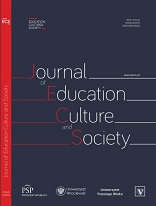Developing efficient foreign language classroom environment for older adult learners
Developing efficient foreign language classroom environment for older adult learners
Author(s): Agata SłowikSubject(s): Social Sciences, Language and Literature Studies, Education, Foreign languages learning, Applied Linguistics, Language acquisition, Adult Education
Published by: Fundacja Pro Scientia Publica
Keywords: University of the Third Age;foreign language geragogy;Older adults;classroom environment;SLA;
Summary/Abstract: Aim: The aim of the research is to present which elements related to teaching English to older adult learners have the greatest influence on creating a propitious and friendly learning environment. In order to achieve this firstly, I wish to present older adults’ observations regarding problems encountered in the classroom environment related to the lack of teaching materials, mixed age and ability groups or being discriminated against by fellow students and teachers. Secondly, I would like to propose some solutions to improve the efficiency of both students and teachers in the classroom environment. Methods: The subjects of the study were 40 older adult learners of English who attended the classes at the University of the Third Age in Wrocław. In the study the participants were asked to choose the answers which, according to them, have the greatest influence on their learning the foreign language in later life. The participants also wrote additional comments that explained their choices. The analysis was qualitative in nature. Results: The analysis shows that teachers (n=35) and teaching materials (n=31) are considered to be the two most important factors in learning a language in later life. The third most vital factor in creating a good classroom environment is related to other students (n=17). The subjects’ comments, however, point to numerous problems encountered in the aforementioned areas that affect the process of foreign language learning in later life. Conclusions: Older adult learners’ needs, abilities and learning preferences should be taken into account while designing language courses as, according to the subjects of the study, at present it is not the case. Moreover, there should be more awareness on behalf of the teachers as to the age-related changes that make certain tasks difficult and the learning environment unnecessarily hostile.
Journal: The Journal of Education, Culture, and Society
- Issue Year: 10/2019
- Issue No: 2
- Page Range: 189-200
- Page Count: 12
- Language: English

